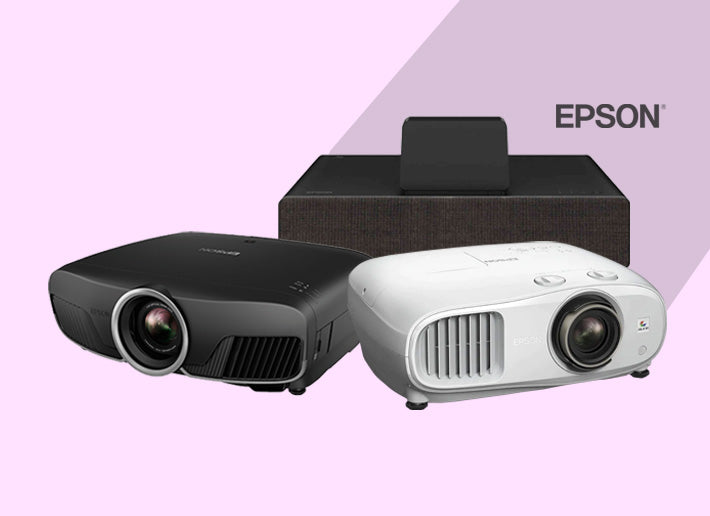Over the last few years, the use of projectors in home theatre systems is gaining stellar momentum. More and more movie lovers are installing projectors to emulate a cinema-like environment in their homes. While a high-definition TV is great, you cannot overlook the advantages of using projectors as a display.
Despite its increasing popularity, many users still have their doubts about opting for a projector-based home theatre setup. This scepticism stems from lack of knowledge and information about the right way to use home cinema projectors. We're all aware that myths exist due to half-baked and often misinterpreted information. In this guide, we debunk top myths about using projectors in home theatre systems.
Televisions are better than projectors
Firstly, comparing projectors and television does not make much sense. Both technologies have different operating principles. If you are a movie lover or a gaming enthusiast who loves that big-screen surround-sound experience, then a projector is your best option. A projector-based setup can bring that theatre experience in your home. Additionally, watching from a projection screen causes lesser strain on the eyes as the light reflection is not as strong as a flat-panel television screen.Maintaining a projector setup is expensive
Many people are misled into believing that projector lamps have a limited lifespan and need regular replacement. This is just not true! Expensive lamps are a thing of the past. Many projectors from leading brands offer a lamp life of up to 5,000 hours. In fact, the newer laser projectors capable of delivering a lamp life of up to 10,000 hours. You should also remember that projectors are capable of displaying various screen sizes ranging from 100" up to 300" or even more. Now, weigh this with the cost of a 100" plus TV.Projector screens are too big for small homes

A large blank wall is required for projection
If this was 20 years ago, sure, you would need a blank wall. However, projector technology has come a long way since then. Today, it is possible to have a pull-down or even a portable outdoor projection screen which can be kept away when not in use. There are also projection screen models that are completely motorised and can be recessed into the ceiling.Finally, we don't suggest projecting on a blank wall. It can actually dampen your movie viewing experience. Instead, you should opt for a projection screen get a nicer picture with better colour accuracy and more uniform brightness. Additionally, the black frame around the edges of most projection screens helps the image to pop more by improving the perceived contrast.
A projector-setup needs a dedicated dark room
Again, projector technology has come a long way. Modern home theatre projectors offer a white and colour brightness of 2,400 lumens or more. This is more than enough for viewing, even in the presence of moderate ambient light. Even with a TV-based setup, you need to draw the curtains/blinds to avoid glare, especially while watching movies.Installing and using projectors is difficult
The truth is, using a projector is as simple as using a TV. You only need to setup, fine-tune and calibrate once, the rest is the same. Home cinema projectors can be set up anywhere in a room and can easily connect to your source devices. In fact, there are a plethora of models that even offer wireless casting functionality for viewing movies in Full HD.When it comes to technology, numerous myths exist. As a buyer, it is crucial that you look at these myths critically and try to decipher the truth. If you still can't make up your mind, then just ask for help. We at Ooberpad are readily available to answer your queries, clear doubts and help you buy the right gear for your dream home theatre setup.









